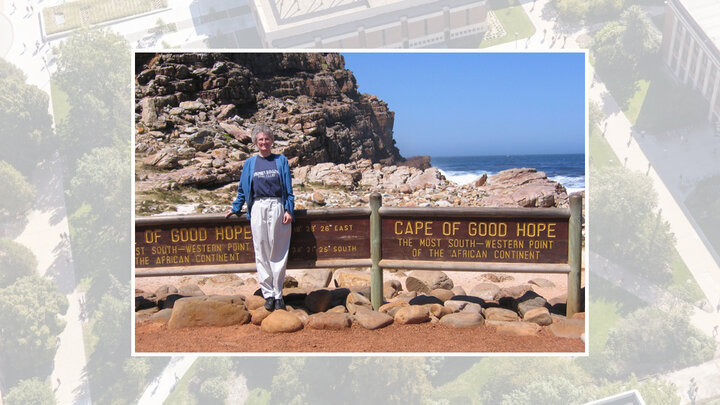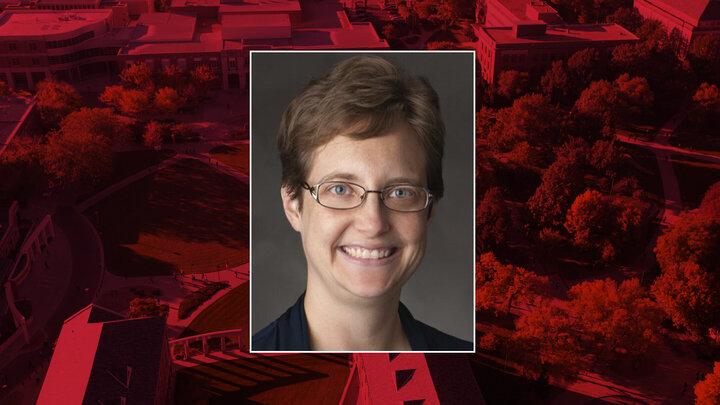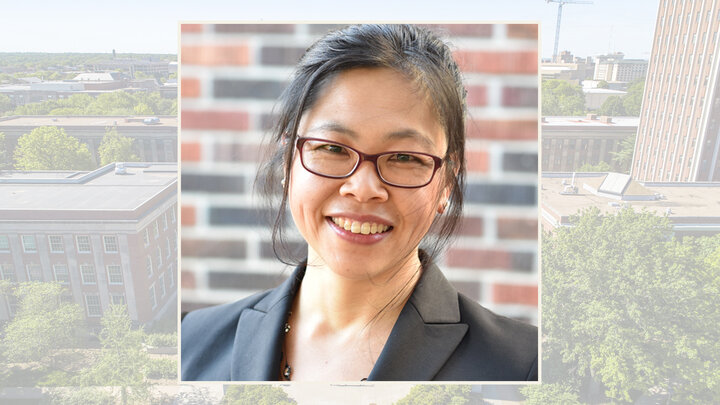Attending a lecture can change the course of your career. Just ask Amy Bouska.
While a mathematics instructor at Virginia Tech, Bouska was persuaded by a colleague to come and listen to a presentation by an actuary from Travelers Insurance. The speaker asked: How do you figure out the insurance rate for the Brooklyn Bridge, when it's the only bridge like it in the world?
"I thought, that is the coolest question ever. I came out knowing that was what I wanted to do," said Bouska, a 1969 graduate of the University of Nebraska-Lincoln with a major in mathematics and a minor in economics. Just like that, her successful career as a casualty actuary began.
In 1979, Bouska went to work for Aetna. She then moved to Nationwide, where she led their first commercial lines actuarial department and became one of the first two female officers in the insurance operations. In 1987, she joined Tillinghast, a large consulting actuarial practice (now Towers Watson). She worked in their Bermuda office for four years, then Washington, D.C., and finally Minneapolis, becoming a principal (partner) and a member of the management team.
Bouska, FCAS, MAAA, specialized in manmade catastrophes, such as pollution and lead paint. She and a friend built the first model for these situations, reaching outside of the insurance world to use engineering and legal data. They had to factor in issues such as past court decisions in states regarding these claims, how much companies can afford to pay based on their size and history, and how many polluted sites are still to be found.
"Then you build the giant model that struggled to run, even on the fastest PCs of the day because of all of the coverage scenarios that had to be calculated. Nowadays, of course, it would take just a fraction of that," Bouska said. "Anyone who says actuarial science is boring hasn't worked very hard at it."
"I truly enjoyed being an actuary," Bouska added. "Who would have thought shy little old me would become a consultant and could give a talk at Lloyd's of London? Well, I guess teaching solved that."
In 2006, Bouska took early retirement. She volunteers for the Casualty Actuarial Society, having been on the Board of Directors and Vice President International. She was also a delegate to the International Actuarial Association for seven years, which took her all over the world, "to Rio, India, Rome, Cyprus, while working with wonderful people. Travel is a reward unto itself," said Bouska, who has also lived in Germany and Israel.
Luckily for Bouska, she grew up in a household where math is just what women did. Her mother was a middle school math teacher, and Bouska was determined to be a math professor. She earned her master's degree in mathematics from Duke University in 1971, completed her doctoral orals, and went to Virginia Tech to work on her dissertation. After deciding not to finish her degree, she became a full-time math instructor while working on a second master's degree in statistics. Disheartened by increasing class sizes, she was looking for a new career opportunity, took the advice of a colleague and went to hear the fateful talk by Travelers.
Bouska remembers from her time at UNL how incredibly approachable the mathematics professors were. She grew close to Professors Donald Miller and Hubert Schneider, and has kept in contact with Walter Mientka and David Skoug. Once, while representing Tillinghast at a Math Olympiad dinner in Washington, DC, she even ran into Mientka.
She also made lifelong friends from UNL, who get together every five years for a reunion. They called themselves The Abelian Group.
"Math, in general, gives you a way of looking at the world logically and skills for working through problems. It breaks down huge problems and gives you confidence. Having good interactions with professors gives you confidence too," Bouska said. "I tell high school students that you get out of your college education what you put into it."
Her advice to college math majors comes from a hiring perspective: "We assume that people are technically competent, and that they know Excel and Word. But, what makes a huge difference is when people can speak and write proficiently. If you can't convey your thoughts to people, you aren't going to get very far. Once you get your required mathematics courses done, take the hardest English composition and public speaking courses you can find for electives. Communication is critical no matter what you are doing."
Now back in Iowa, Bouska has found another career. In 2009, she ran for a seat on the Cresco City Council against an incumbent who had been on the council for almost 20 years – and she won. She may not be dealing with catastrophic risk, but, as Bouska described, "trying to maintain a level of services on a budget that grows slower than our costs" is a problem she is prepared to try to solve.
"I had only been back in town for two years, but I won, so I was really surprised," she said.
Life is full of surprises, as Bouska's career illustrates, but, as she said, "math opens doors and provides a great way of understanding the world."




